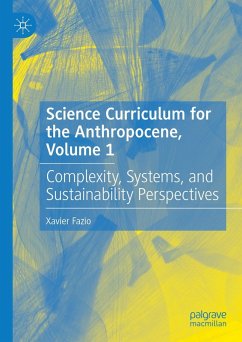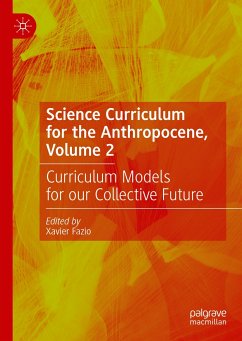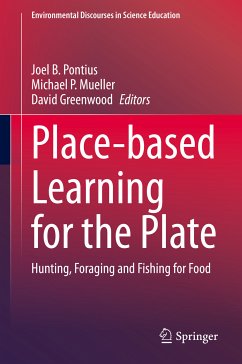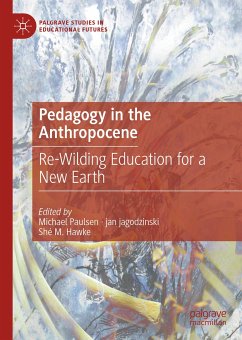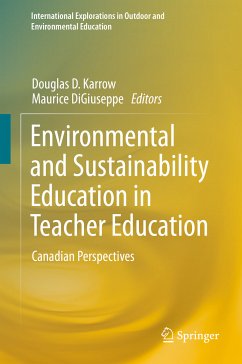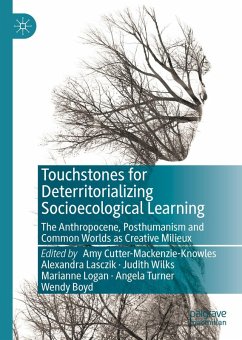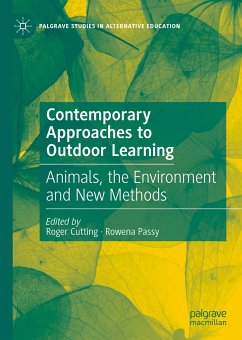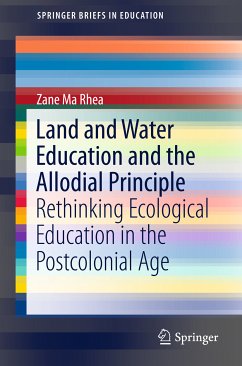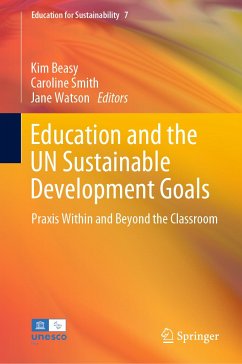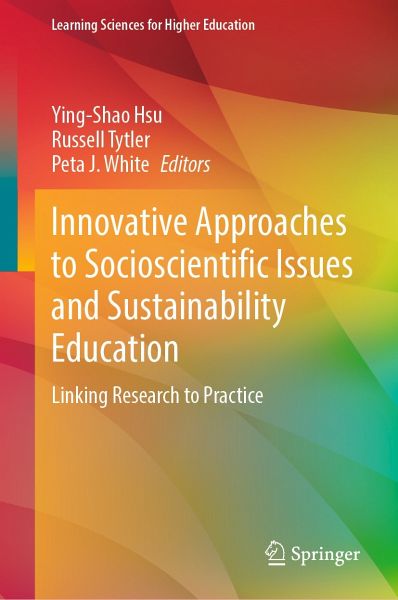
Innovative Approaches to Socioscientific Issues and Sustainability Education (eBook, PDF)
Linking Research to Practice
Redaktion: Hsu, Ying-Shao; White, Peta J.; Tytler, Russell
Versandkostenfrei!
Sofort per Download lieferbar
128,95 €
inkl. MwSt.
Weitere Ausgaben:

PAYBACK Punkte
64 °P sammeln!
This book explores innovative approaches to teacher professional learning, examples of teaching enacted in classrooms, and factors affecting the promotion of quality teaching in socio-scientific issues and sustainability contexts. Since educational settings and cultures influence teaching, the different approaches and perspectives in various cross-national contexts enable us to appreciate the diversity of different countries' practices and provide insight into seminal approaches to socio-scientific issues-based teaching internationally. The book consists of three parts: innovative professional...
This book explores innovative approaches to teacher professional learning, examples of teaching enacted in classrooms, and factors affecting the promotion of quality teaching in socio-scientific issues and sustainability contexts. Since educational settings and cultures influence teaching, the different approaches and perspectives in various cross-national contexts enable us to appreciate the diversity of different countries' practices and provide insight into seminal approaches to socio-scientific issues-based teaching internationally. The book consists of three parts: innovative professional development programs, innovative teaching approaches, and issues relating to student engagement with socio-scientific issues and sustainability education. The book targets those who can be expected to develop curriculum, enact teaching practices, and facilitate teachers' professional development in socio-scientific issues and sustainability education.
Dieser Download kann aus rechtlichen Gründen nur mit Rechnungsadresse in A, B, BG, CY, CZ, D, DK, EW, E, FIN, F, GR, HR, H, IRL, I, LT, L, LR, M, NL, PL, P, R, S, SLO, SK ausgeliefert werden.



